Photographs: Reuters Sumeet Chatterjee and Nidhi Verma in Mumbai/New Delhi
India's move to raise the price of subsidised diesel should help with its plans to sell shares in state companies, including Oil India Ltd, to help bridge the government's fiscal deficit and gives a boost to private oil refiners looking to enter the market for bulk diesel sales.
New Delhi, which owns about 78 per cent of Oil India, is likely to raise more than $500 million by selling 10 per cent in the explorer and producer early next month, said sources with direct knowledge of the plan, declining to be named because details are still being worked out.
Raising the diesel price may also help revive a 10 per cent stake sale in retailer Indian Oil, which hired six banks in 2010 to prepare for the sale only to shelve the issue as its earnings worsened because of the subsidies, although people familiar with the matter said such a sale was unlikely to happen soon.
. . .
Why diesel price hike is good for India
Photographs: Reuters
Selling shares in state companies is a central plank of the government's plan to bring the deficit down to 5.3 per cent of gross domestic product for the financial year ending March and avoid a credit downgrade from global ratings agencies.
The subsidy burden of India's state oil producers and retailers has also been a worry for overseas investors, who are usually the biggest buyers of large share deals in Asia's third-largest economy.
"The element of cynicism around the public-sector oil firms will reduce a great deal after this decision," said Jagannadham Thunuguntla, equity head at SMC Global Securities.
"It augurs well for the divestment programme."
. . .
Why diesel price hike is good for India
Photographs: Reuters
The government, which fixes the retail price of diesel, on Thursday told retailers to raise prices in small amounts every month, a move that should also improve revenues in the sector.
At the same time, it removed price controls for bulk sales, which account for about 18 per cent of total demand.
Indian stocks, bonds and the rupee all rallied on the government's decision with the rupee at its highest level in nearly two-and-half months on Friday.
"In aggregate the decision would help attract more investment in the oil and other sectors from foreign investors," said a senior finance ministry official, who declined to be named because of a restriction on speaking to the media in the run-up to the Indian budget release.
. . .
Why diesel price hike is good for India
Photographs: Reuters
Refiners see benefits
While shares in India's state-run oil refiners rallied, the decision to sweep away subsidies for bulk sales could create an opportunity for private rivals Reliance Industries and Essar Oil, which may look to broaden their market share.
Large-scale diesel sales account for about 18 per cent of the total demand of some 522 million barrels a year. State-run IOC, India's biggest refiner, owns about 80 per cent of the market.
"If there is a level playing field, we will be in the market and we will be competitive. We are looking at being in the market in this segment," said L.K. Gupta, chief executive of Essar Oil, India's second-largest private refiner.
Reliance, owner of the world's largest refining complex, with 1.2 million barrels per day (bpd) capacity on India's west coast, could also look to sell more in its backyard.
. . .
Why diesel price hike is good for India
Photographs: Reuters
"There will definitely be an impact on volumes," said IOC's director of marketing, M. Nene. "Earlier there were three players, now there will be three more," he added.
Private refiners might offer better credit terms, discounts and service to bulk customers, Nene added.
Along with IOC, state-run HPCL and Bharat Petroleum Corp sell to bulk customers, which include railways and defence industries in the state sector and cement companies, miners and power plants among private clients.
Serious competition in bulk sales is still seen some way off, with private refiners lacking the marketing infrastructure, and many big state-owned clients having annual contracts.
While a difference remains between bulk and retail prices, large-scale customers may be tempted to buy as much as they can in the market where subsidies continue.
. . .
Why diesel price hike is good for India
Photographs: Reuters
"We have to be very vigilant at the retail level as we should not be permitting supply of diesel from the retail outlets to consumers who are not entitled to get such supplies," said Nene of IOC.
Nomura analysts said in a Friday note that "higher prices for bulk sales should reduce the bulk market size," as private companies would have lots of incentives to resort to retail purchases to cut costs.
State-owned sale down
New Delhi wants to raise $5.5 billion by selling stakes in state-owned companies in the current fiscal year that ends in March.
While the plan is far behind schedule, it got a boost from a $1.1 billion offering in miner NMDC Ltd last month.
Before the NMDC sell-down, the government had raised just $148 million in the current fiscal year.
. . .
Why diesel price hike is good for India
Photographs: Reuters
Besides Oil India, the government plans to raise more than $2 billion from a stake sale in power producer NTPC Ltd next month.
Most foreign buyers stayed away from a $2.6 billion stock auction in Oil and Natural Gas Corp Ltd in March last year.
Uncertainty about its subsidy burden was one of the reasons for the poor response to the issue that was bailed out by state financial investors.
State-run upstream oil companies Oil India, ONGC and GAIL (India) Ltd, sell refined products and crude oil to state retailers at a discount, which hurts earnings and dims investor appetite.
"The biggest challenge in an offering by a public sector oil company is to answer all the investor queries around the subsidy mechanism and its impact on the earnings outlook," said a source involved in the Oil India share sale process.
. . .
Why diesel price hike is good for India
Photographs: Reuters
"The government's diesel price move is surely a good step and brings clarity about their financials, which will boost demand for shares," said the source, who declined to be named as he was not authorised to speak to the media.
Analysts said producers such as Oil India would benefit most from the diesel price hike, given they have been selling crude oil and associate products at a discount and could be allowed to charge higher prices.
Shares in Oil India rose as much as 20 per cent on Friday, adding $1.1 billion to its market value, while the main Mumbai market index was up 0.6 per cent. The stock gave up some of its gains later and was trading up about 10.2 per cent.
At the current market price, 10 per cent of Oil India is valued at about $630 million. New Delhi usually auctions shares to investors at a discount to the market price to ensure demand.
(Additional reporting by Prashant Mehra in Mumbai; Manoj Kumar and Rajesh Kumar Singh in New Delhi; Editing by Matt Driskill)

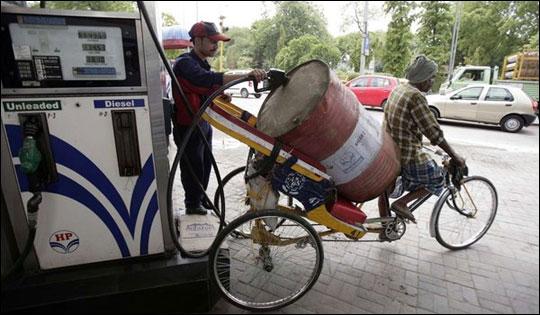
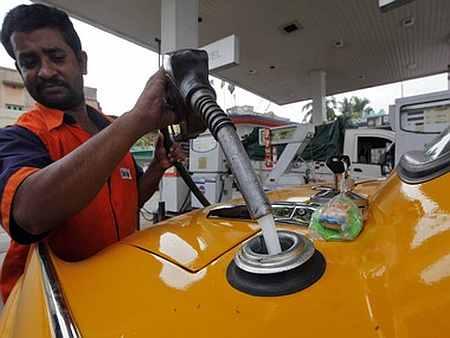
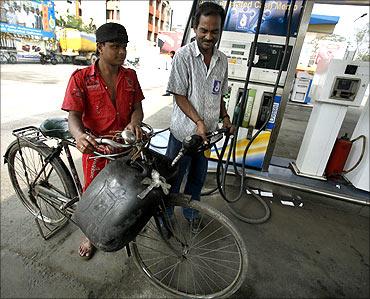
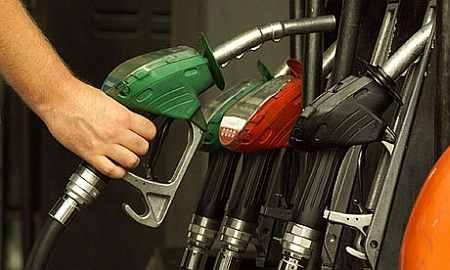

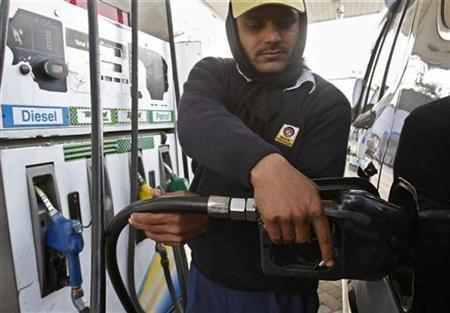
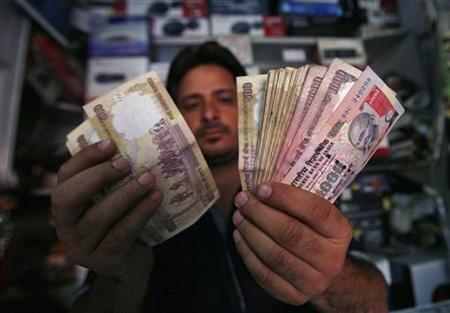
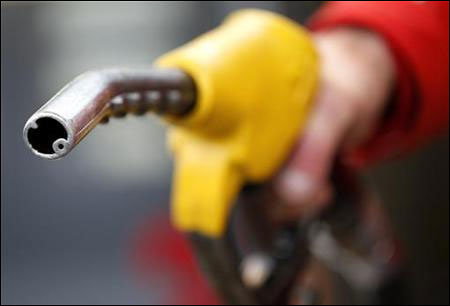

article